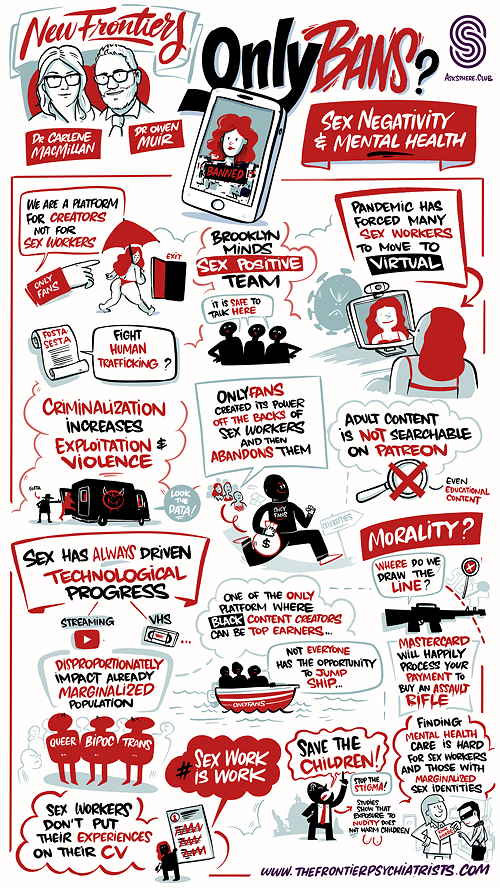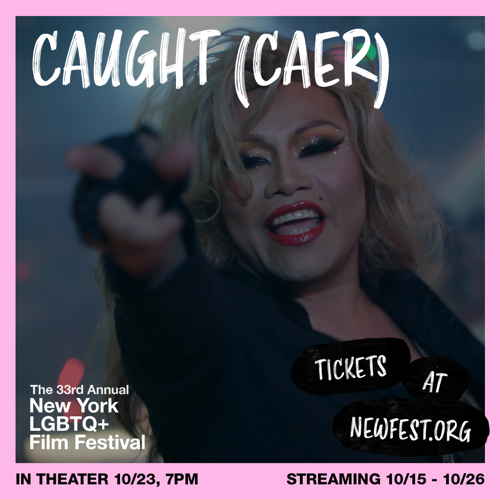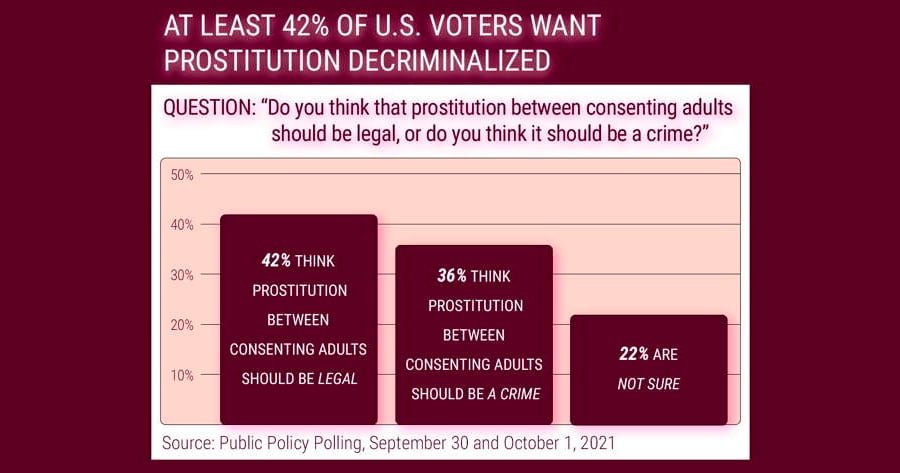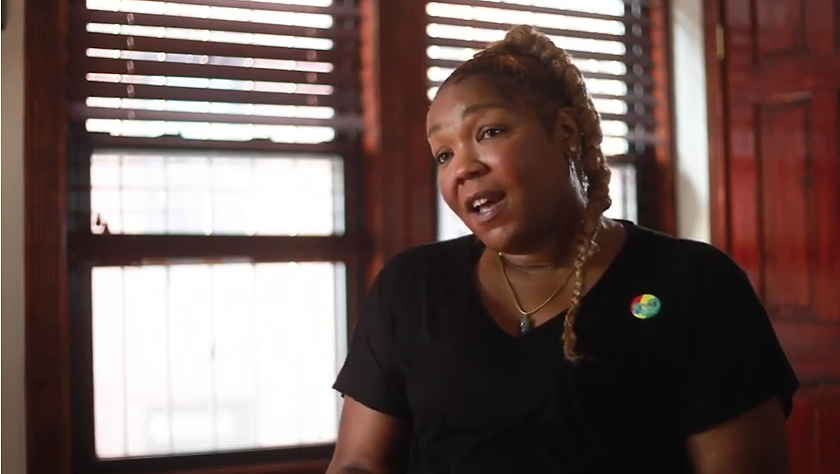October 15, 2021
“The first act of resilience is to take a breath and acknowledge that we have a right to exist,” Kiara St. James told the Human Rights Campaign in a 2019 interview. St. James has been an activist for over 20 years, promoting equity-building policies in New York and beyond. Currently, she is the co-founder and executive director of the New York Transgender Advocacy Group (NYTAG) and an international figurehead in the fight for transgender rights. Her work has largely focused on advocacy for the rights of Transgender and Gender Non-Conforming (TGNC) individuals, housing, and combating the spread of HIV/AIDS. St. James is the first to say that any policy change supporting health and safety for individuals is a step in the right direction. “You don’t need to be TGNC to see these things making sense,” St. James says. “I’ve worked on TGNC issues, needle exchange programs, advocated for a 30% rent cap, and others.” Currently, she is focusing on universal basic income to give all people, no matter their background and identity, access to basic resources.
St. James is a soft-spoken visionary, full of vibrant energy. Throughout her interview, she slips easily in and out of anecdotes from her past and present, recognizing the significance of different events and relationships. She has been interviewed hundreds of times but St. James has no love of the spotlight. “I am always encouraging younger girls to step into their power, and giving a platform to other Black trans women, not just me,” she says. Activism gave St. James her community, and she has spent her whole life pouring herself back into it.
Born in Beaumont, Texas, St. James grew up surrounded by a large network of extended family. She describes her father as “intense” with a lot of “toxic masculinity.” As a result, she relied a lot on her “favorite aunt” who encouraged St. James to explore her identity. “She supported me. She was like, ‘Baby I knew what you was gonna be before you knew what you was gonna be. I see you fighting with your sisters and your female cousins to play wonder woman. …’ I was never a male character,” St. James laughs. It was her aunt who convinced St. James’ parents to put the 11-year-old into foster care abroad, giving her access to a more welcoming environment, eye-opening experiences, and freedom.
St. James moved to Heidelberg, Germany for eight years. She traveled around Europe with her foster parents, who worked for the Department of Defense, and siblings, and says this opportunity was critical to her overcoming the transphobia and racism she faced in her early years. “I was in Germany and no one talked down to me,” she laughs. “I’m not gonna let you talk down to me.” It’s funny though — for St. James — who now looks back on this experience as a blessing. At the time, she was filled with loneliness and often wanted to return home.
Upon moving back to Texas, St. James had an entirely different frame of reference for equity and justice. She got involved in activism, specifically around challenging the names of landmarks, that celebrated the legacy of slavery and the Jim Crow era. St. James then moved to Atlanta, Georgia, where she became a home care worker and got involved in ACT UP, also known as AIDS Coalition to Unleash Power and other queer spaces. “Believe it or not, I was one of the few Black faces in ACT UP at that time,” says St. James. She conducted outreach work in her community around sexual health. As she reminisces on this time, her joy and passion for connecting with people bubbles to the surface. She laughs remembering that many of the married women she talked to would reject her advice to wear a condom, even though most of St. James’ sex work clients at the time were married men.
St. James moved to New York for her partner at the time, who dreamed of finding himself in the northern metropolis. “I never wanted to move to New York. … It was very different, it looked like it did in the movies and all those TV shows. It was grimy, it was dirty, and it was home. I found community here, but I also found a lot of trauma. I found a lot of anti-blackness.”
Sex work is what introduced St. James to the activists that ultimately shaped her career. It was early morning and she was in the Meatpacking district after a night of work. The shelter she was currently staying at didn’t open until 4 pm and she was preparing to head back to try to beg to be let in early as she was desperate for sleep. St. James remembers hearing someone call her name (at the time, she went by “Big Nasty”), and she turned to see her friend waving from a big bus. The friend encouraged St. James to travel to Washington, D.C. with them to demonstrate against the governments’ non-existent AIDS policy. St. James balked at first, having just worked a long night but eventually agreed to join them. She remembers the sheer energy and joy of the demonstration; it swept her off her feet. “People from all walks of life were there. I started meeting people, Black trans women from other states and gender-queer people.”
They lobbied and marched all day. It turns out the organization that had put together the demonstration was Housing Works, an organization fighting homelessness and HIV/AIDS in New York City. St. James worked for Housing Works for the next decade and still has a good relationship with the leadership there.
She founded NYTAG in 2014 along with four other transgender women of color, Tanya Asapansa-Johnson Walker, Celine St. John, Armani T. Taylor, and Cheryl Clancy. The organization’s mission is to “advocate for more inclusive gender-based policies that benefit Transgender and Gender Non-Conforming/Non-Binary (TGNCNB) individuals through building community.” NYTAG builds equity for TGNCNB individuals using training and education programs designed to dismantle stigma and violence, and build bridges between communities.
When asked what inspired NYTAG, St. James sighs. “Frustration, mostly.” She recalls being in non-profit and outreach spaces designed to focus on issues impacting the TGNCNB community, but every time someone raised a concern, it would be tabled and not revisited. “This is a new way of silencing us, it’s a microaggression in a way that seems like they are still being supportive of us but they are silencing our voices.” St. James felt like many organizations, even those with good intentions, were appropriating the identities and struggles of Black and Brown trans women without really listening to what they needed.
This was a dynamic that St. James and her compatriots faced almost everywhere. By 2014, her activism ran the gambit. She had an extensive network of colleagues and elected officials and had built up a significant base of support and knowledge. St. James, along with Walker, St. John, Taylor, and Clancy, decided to take the leap. Seven years later, NYTAG is one of the most well-established and respected TGNC-rights organizations in New York.
St. James sees advocacy as a holistic act: “I don’t exclusively fight for trans issues. We have to be brave enough to go into spaces where we are not generally welcome … because that’s how you begin to build a coalition … anything that is going to improve the quality of life of vulnerable people is what we should be fighting for.”
Throughout her career, St. James has taken these principles to heart. She has always been the first to lend a hand, money, and power to stand in until they find their own. In the last few years, she has had to take a step back and evaluate her own capacity to keep giving. For someone whose work is their identity, and whose identity is their work, this can be a difficult thing to balance. Visiting her family in 2019, she was talking to her aunt about her work. “And she looked at me and asked me, ‘Who pours into you?’” This brief conversation allowed St. James to reevaluate. For the last two years, she has been focusing on spending more time with her partner of three years, her family, and friends, and has come back to advocacy refreshed, and with a full heart.
“I have learned how to do this work differently so I don’t burn out,” she says. “I look back over my life with an understanding of how many people I have lost. So much of my work is dedicated to them and I’m grateful that I didn’t give up. I still have so much love for my community and I just want the best outcome for everyone.”
St. James is proud of the national and international leader she has grown into, as she well should be, but it’s clear from the way she talks about the work that her community is her main motivation. “I have always wanted to make sure that in any NYTAG space, people leave feeling inspired,” she says of the upcoming Transgender Day of Remembrance (TDoR) commemoration on November 20. “TDoR events are traditionally quite sad but if I’m going to do a TDoR event, it has to be a celebration. We cannot leave impressionable, young folks with the narrative that they could be next. We have to do better. There are so many amazing TGNC folks who have accomplished great things and they are gonna share their knowledge — I want TDoR to be that kind of event. … Acknowledge the epidemic of murders that continue to impact our community but we also want to let people know there’s hope, and here’s how to protect yourself.”
St. James believes that we are at a time of great and historic change and that it is each and every individual’s responsibility to fight for a world in which everyone is affirmed. She would like to see more TGNCNB people in political office, shaping the world around them. “I love this new term — gender euphoria,” St. James says. “It speaks to what happens when enough of us take agency over our lives and over our narrative.”

(Courtesy of Kiara St. James, 2021)
DSW Newsletter #29 (October 2021)
Hero of the Month: Kiara St. James

Backpage’s Mistrial

DSW’s J. Leigh Oshiro-Brantly on The Frontier Psychiatrists

Mastercard Ignores Sex Worker Concerns

Save the Date

At Least 42% of U.S. Voters Want Prostitution Decriminalized


